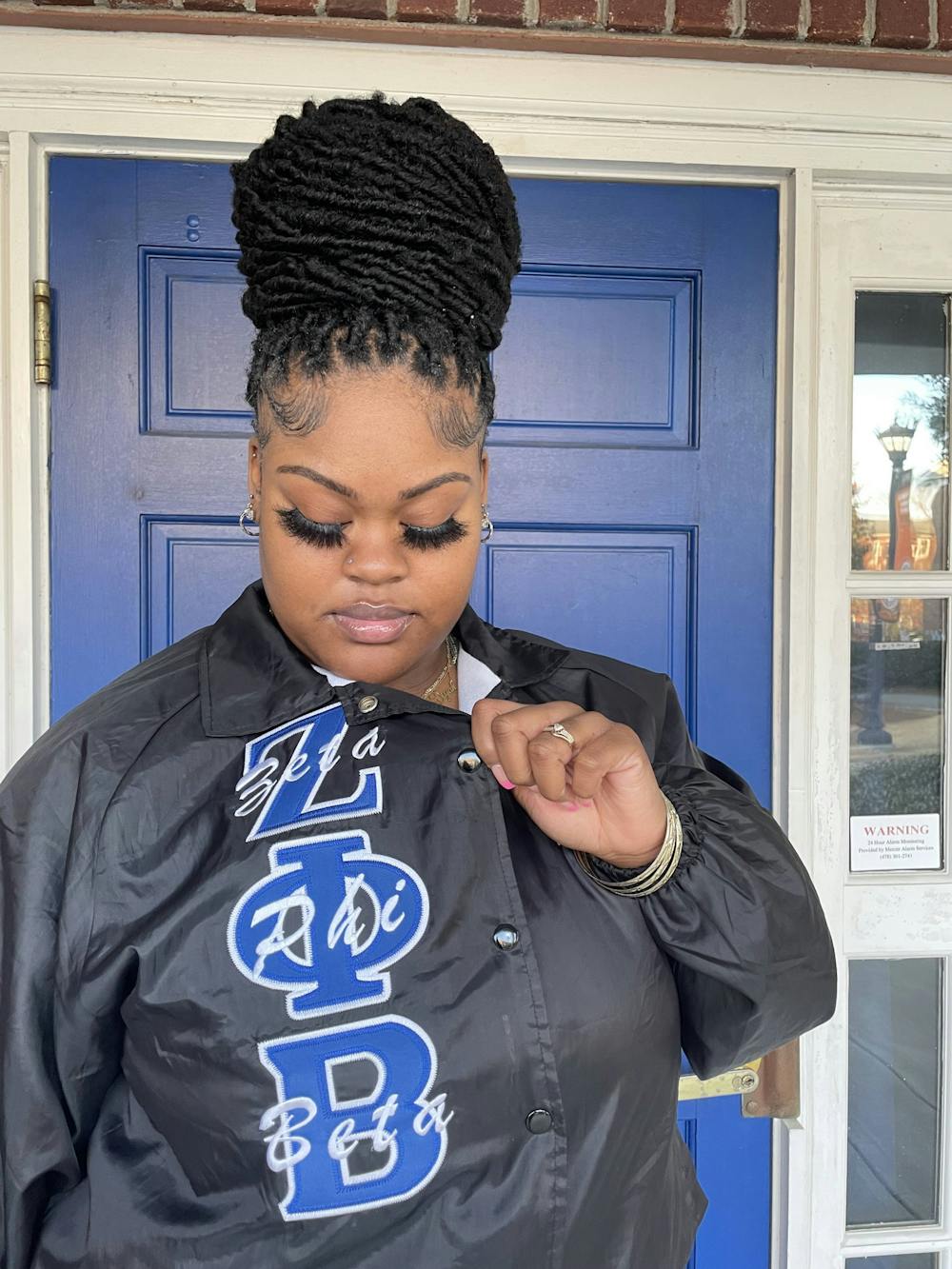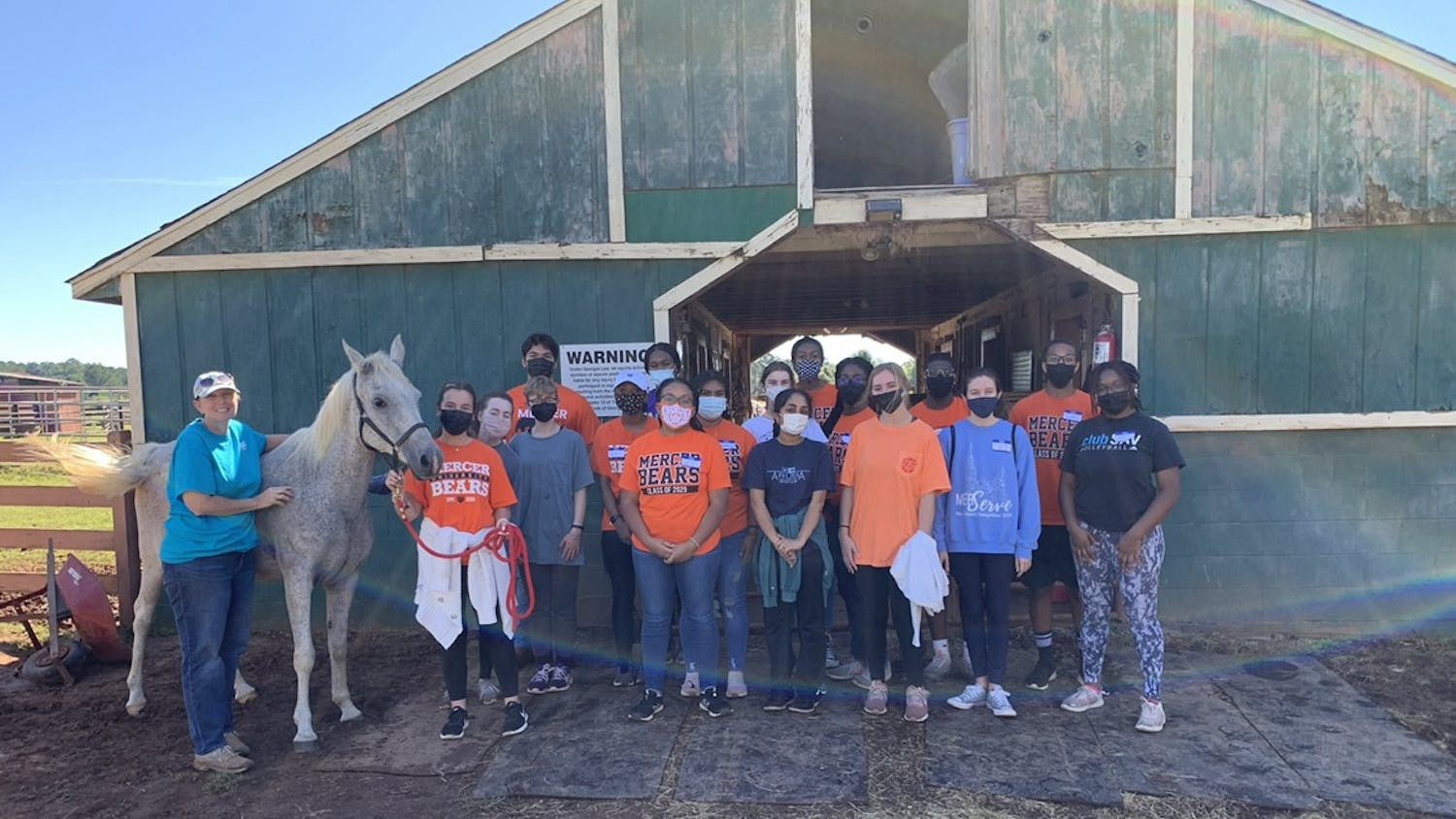While one in four students at Mercer University are involved with Fraternity and Sorority Programs, according to the Office of Campus Life, many are not familiar with the National Pan-Hellenic Council (NPHC).
NPHC is one of the four councils on campus and is composed of historically African American fraternities and sororities. The council was founded in 1930 at Howard University in Washington and has been on Mercer’s campus since 1976.
Ansley Booker, the director of diversity and inclusion at Mercer, has also been the advisor of the National Pan-Hellenic Council since 2015. Over the years, she said she has seen NPHC make a significant impact on Mercer’s campus.
“Even though our chapters are smaller, we are mighty in our impact in terms of academic involvement, philanthropy, community service and overall educational awareness and impact,” Booker said.
For Ja’Diyah Shamsiddin, a senior in Zeta Phi Beta Sorority, Inc., NPHC has been instrumental to her self-empowerment.
“Being a Zeta means that I am representing what could be possible for a lot of young Black girls," Shamsiddin said. "I remember growing up and not having a lot of people to look up to and people to say that I can go to college and have a good career and do anything I want to do, but joining Zeta and being connected with so many different people who can open the doors for different opportunities changed that."
She said she appreciates that her sorority has a strong commitment to giving back to marginalized populations locally and internationally.
“That’s something I want to do. That’s why I majored in criminal justice and sociology, to give back to these communities and just help bridge the equity gap,” Shamsiddin said.
According to Booker, one of the main misconceptions regarding NPHC on campus is that the council is reserved exclusively for African American students.
“We just want to make sure that we are welcoming to all students regardless of race, ethnicity, sexual orientation, age," Booker said. "I think that is one of the best things about NPHC that I have seen, not only on this campus but in general."
According to Booker, NPHC differs from many other Greek programs in that they usually accept new members in the second half of the year, and members join the second year of college, not the first. It also differs in long-term involvement.
“I see the longitudinal impact of NPHC organizations because, different from other organizations, our memberships carry on post-graduation, so literally we have lifetime membership and commitments,” Booker said.
James Simmons, a fifth-year electrical engineering student, described the lifetime community in his fraternity, Phi Beta Sigma Fraternity, Inc., through the organization’s three principles of brotherhood, scholarship and service. He said that brotherhood is the main focus because of the way they lift each other up academically and socially.
“I got sick not that long after I crossed (became an active member),” Simmons said. “The brothers were the first people that came to see me in the hospital outside of my family. It’s really good to have that community to help hold me up.”
In recent years, NPHC has held many panels, multicultural events and initiatives, including a protest for police brutality with over 400 students in attendance, a vigil for Brianna Taylor and voting advocacy campaigns.
Stomp Fest, NPHC’s annual step showcase, will be held in Willingham Auditorium on April 23.
Eliza Moore ‘24 is an English and Journalism student at Mercer University. She is now in her second year working as The Cluster’s News Editor after a semester abroad. She is currently producing work for Macon Magazine and Georgia Public Broadcasting in addition to her work with The Cluster. She loves breakfasts, the ocean, and all things related to writing.





